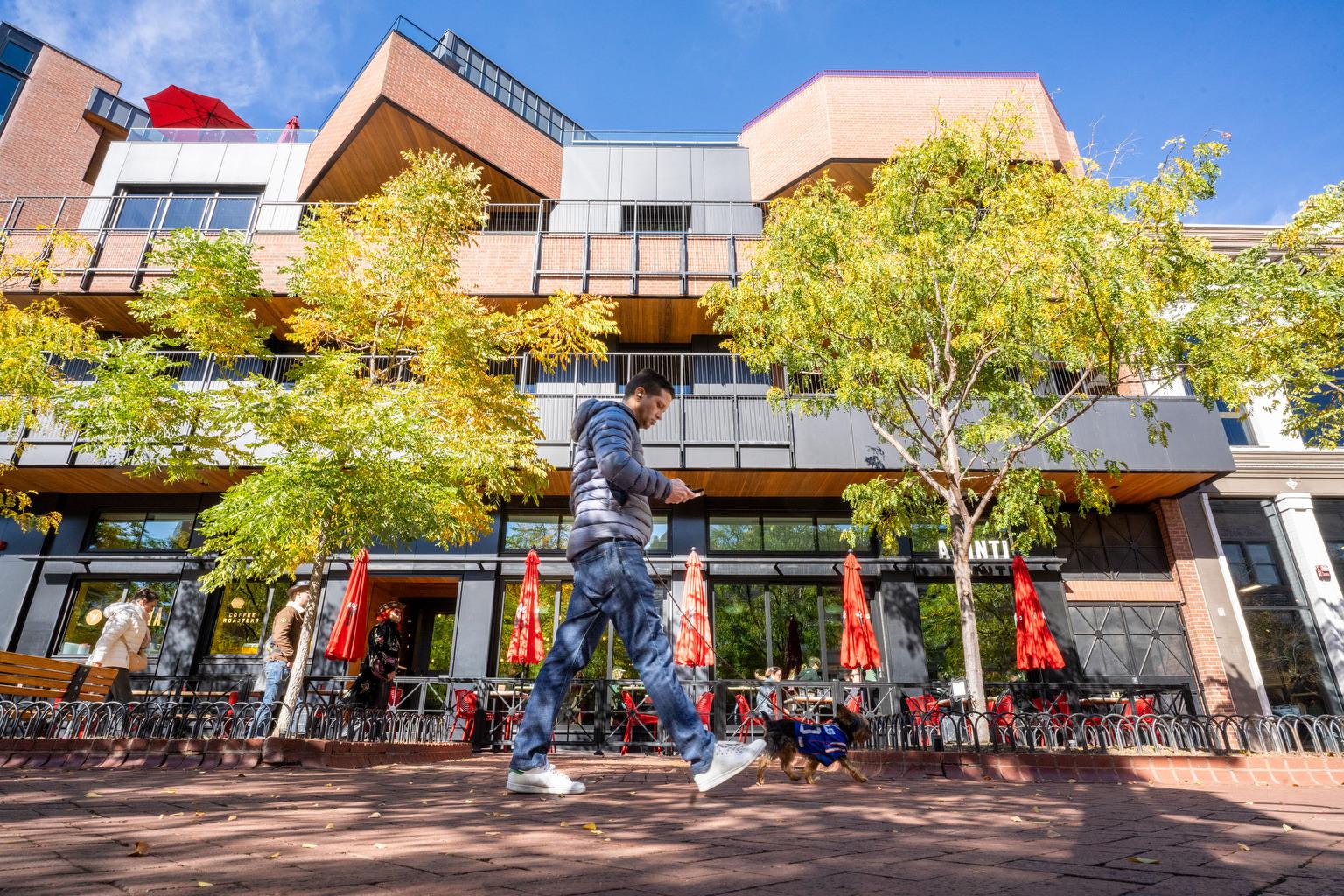Most of the talk about the state’s budget focuses on next year’s looming shortfall. Beyond that, the picture is even grimmer. Many experts believe there’s a fundamental imbalance between how much money the state brings in, and what it’s committed to pay for. As part of our series Budget Breakdown, we look at the effort by some groups to convince voters the problem isn’t the amount of money going out, but how much is coming in...
This is a story about tax increases, although it can be kind of hard to get people to admit that. Even people who really believe citizens need to contribute more money to pay for state services -- people like Carol Hedges -- don’t really like the T-word.
HEDGES: "We’re not asking the public to buy a tax. What we’re doing is asking the public to consider the role that the public sector plays in their family, in their business, and in their everyday life."
Hedges directs the Colorado Fiscal Policy Institute. She may want the public to think about big ideas but she’s hoping they come to a very concrete conclusion: Colorado needs more money, for roads, for human services, for education at all levels. And the only way to get there -- she believes -- is higher taxes.
HEDGES: "We’re looking at being $1600 below the national average in per-pupil spending. There is no way that we can accomplish that kind of... spending increases simply by focusing on efficiencies."
What the Colorado Fiscal Policy Institute really wants is to overhaul the state’s tax system which they say right now puts an unfair burden on the poor and working class. But they’re also looking at what has the best chance of passing. And that may be a much more modest proposal, say a small increase for a specific thing, like education.
Whatever CFPI does try to put on the ballot in November, they’re already working on their message. The group recently held a day-long seminar for people interested in raising reveues. Speakers introduced participants to the finer points of winning voters over to a tax increase.
But wooing voters isn't easy; around the country, tax initiatives pass a little more than a third of the time. According to Jennie Bowser with the National Conference of State Legislatures, the success rate in Colorado is even lower
Sitting in her office, Bowser goes over a list of past tax initiatives, running an orange highlighter over the Colorado ones. Almost all those measures have red Fs next to them, for Fail.
BOWSER: "So really, going back to TABOR, the passage of TABOR, the only one of these that has passed is this tobacco tax increase for health care back in 2004."
It's worth noting that there is a difference between statewide taxes and local tax votes - local tax measures generally fair better with voters. And Bowser does have some good news for groups hoping to raise Colorado’s state tax rates -- Oregon and Arizona both passed increases last year. She says voters often surprise her when it comes to taxes.
BOWSER: "You would think, in a really difficult economy like we have now, that voters would think about the checkbook first and they would say, “I can’t afford a tax increase right now so I’m going to vote no.” But it doesn’t really add up that way. I think there’s a much more sophisticated calculation going on there than just the checkbook balance at home."
Marijo Rymer has spent a lot of time thinking about what gets people to vote for tax increases. She’s the head of the Arc of Colorado, which advocates for people with developmental disabilities. In 2008 Rymer spearheaded an initiative to raise the sales tax to pay for services for the disabled. It failed, which Rymer chalks up to bad timing; the economy tanked just weeks before the election. Now she’s helping organize social service groups to get something on the ballot this year. They’re trying to build a coalition like the one that supported the TABOR time-out, Referendum C.
RYMER: "It’s my sense that that same coalescence is happening now around the need to raise the state’s revenue."
But even as tax advocates are working to agree on a measure, opponents are also preparing. Tony Gagliardi with the Colorado chapter of the National Federation of Independent Business says his group will "absolutely" fight any income or sales tax that shows up on the ballot. More money going to taxes, says Gagliardi, means less money in shopper’s wallets.
GAGLIARDI: "You don’t raise taxes when people aren’t purchasing and people are not buying, we see that every day."
It’ll be that kind of opposition that groups like the Colorado Fiscal Policy Institute will have to overcome if they want to convince the public that spending more on taxes is necessary for the state’s future
_________
Click here to listen to our interview with former Republican State Lawmaker Penn Pfiffner. He's senior fellow a the Independence Institute and he'll talk about a proposal to fix the state budget with changing in spending, not new taxes.









